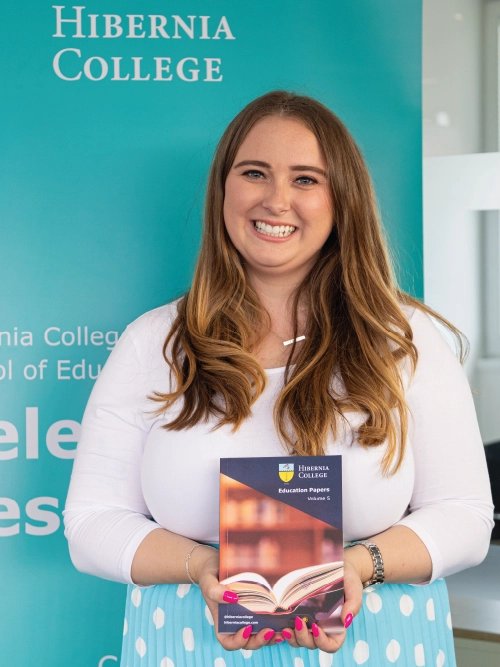
Research profile
Rebecca Ronan
PME in Primary Education
Rebecca has a passion and love for play-based learning, which she continues to explore through action-based research approaches as a primary school teacher.
Research Paper Title
An Insight into Play-Based Learning in the Primary School Classroom
Abstract
This article critically analyses play-based learning in the primary school classroom, specifically, the impact of play on learning, structured versus unstructured play, and the role of the class teacher during play-based learning experiences. Existing research presents strengths and challenges regarding the implementation of a play-based learning environment. The results of this study demonstrated that when play-based experiences are aligned with curricular aims through a particular style of play, meaningful approaches for teaching and learning in the classroom can emerge that fulfils professional aspirations. Research findings show that educators noted their concerns with regards to a lack of policy and official documentation on ways to implement play. This can impose considerable responsibility on teachers to use their own professional judgement with regard to optimising play experiences. Findings further showed a gap in research regarding the long-term benefits of play on education for the senior classes at primary level. However, with the recent introduction of the Primary Language Curriculum in 2016, students at all class levels can engage in various styles of learning, one of which may be play.
Biography
Rebecca Ronan graduated with a Bachelor of Science (Hons) Degree in Education and Training from Dublin City University. She worked as a Learning, Development and Training Executive for a short time. After graduating from Hibernia College in 2021 with a Professional Master of Education (PME) in Primary Education, Rebecca began teaching in a local primary school in Dublin. She has a passion and love for play-based learning, which she continues to explore through action-based research approaches as a primary school teacher. She considers the use of play as affording opportunities for a child-led classroom, where students are encouraged to lead their learning creatively across a range of subjects and programmes. Play-filled classrooms have tremendous benefits, and Rebecca is keen to share these with others.
Research motivation
Can you tell us a bit about your research project?
Play-based learning has a profound impact on the development of students, but isn’t always an approach that is utilised or undertaken effectively in the classroom. This research aimed to explore play-based learning in the primary school classroom and the appropriate strategies to implement it. While the Aistear framework was introduced in 2009, no mandatory training was ever required for teachers; nor is the framework specific in its requirements. It is simply a suggested framework, offering a guide for teachers on play-based approaches. This research sought to explore how play has been established in classrooms, and how it is exactly being implemented as a teaching and learning methodology
What motivated you to undertake this research?
This research topic came about due to a personal love of teaching younger classes and watching their personal and academic development through play. As part of school placements, I developed a love for play-based learning but felt limited in this area. I decided to complete research in this area to get a broader understanding of play as a teaching and learning methodology.
What impact has it had on your practice?
This research has had a huge impact on my current practice. As a junior infants, and later senior infants teacher, play-based learning became a fundamental part of my classroom. Findings from the research have been brought into my classroom and I have implemented the approaches and strategies in my practice. As well as this, I also try where possible to explore the gaps that the research presented and to find some suitable approaches to explore these areas.
How important do you feel research will be in your future practice?
I really loved completing the research and exploring play-based learning in greater detail. While this research will undoubtedly support me in my practice with infants and junior classes, the gaps in the research noted a lack of data on play in senior classes. As I move to senior classes, I believe it will be up to me to use my knowledge of this research, as well as my own best practices in order to implement play-based learning with older children; while ensuring to also meet the academic goals and expectations.